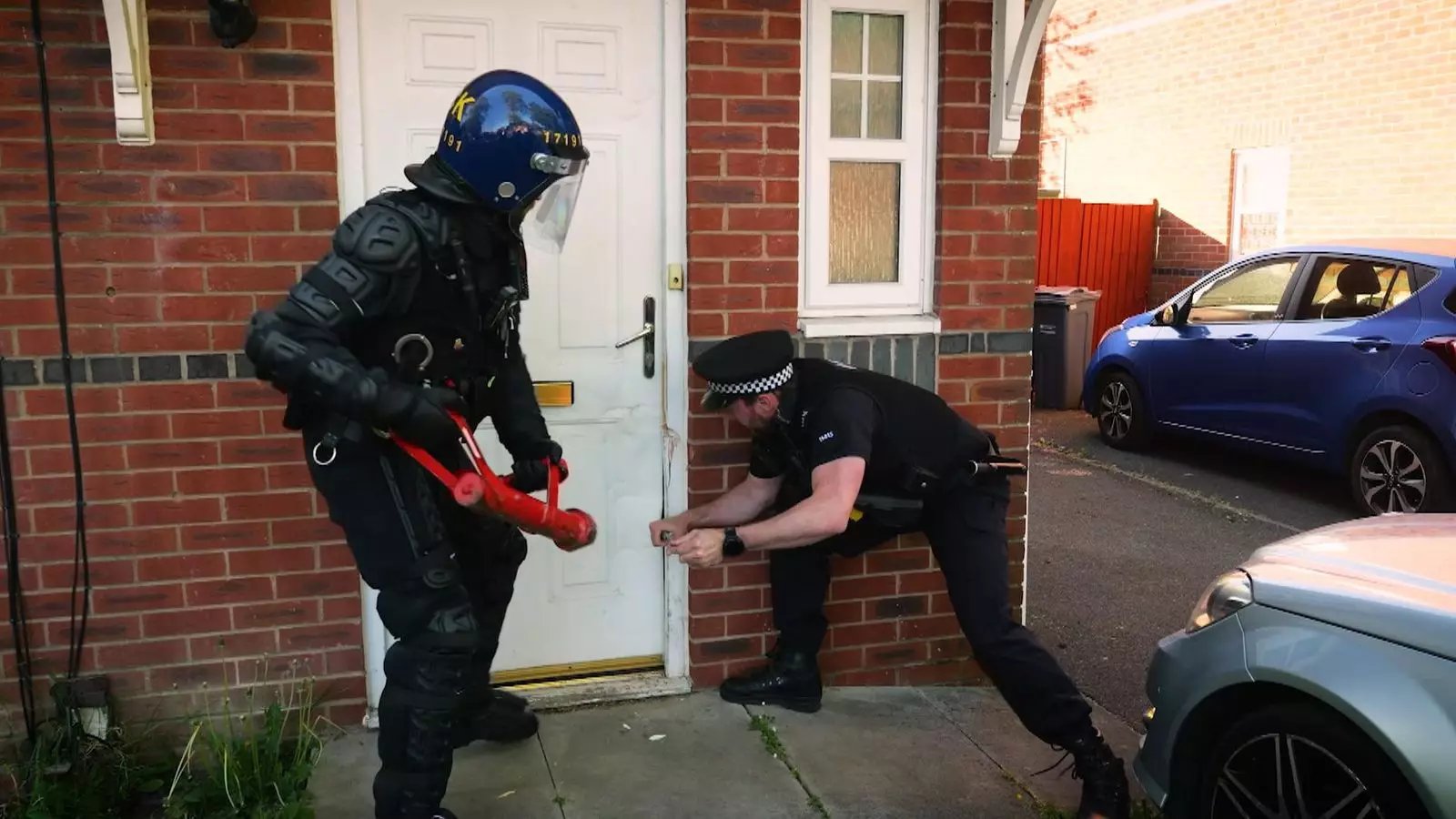The proliferation of illegal cannabis farms in suburban neighborhoods is not just a nuisance; it’s a burgeoning crisis that puts the safety of innocent citizens at stake. Organized criminal syndicates have transformed ordinary rented houses and flats into sinister production hubs, fueling not only the drug trade but also rampant violence and danger in unsuspecting communities. As society attempts to embrace what some perceive as a more liberal stance on cannabis use, we must confront the stark reality behind this trend: the horror that unfolds when these operations fester just beyond our front doors.
The sheer audacity of these criminal operations is astounding. Gangs ingeniously bypass electricity meters to power their illegal activities, avoiding skyrocketing utility bills while simultaneously escalating fire hazards in the surrounding area. It’s a reckless strategy, one that can ignite homes and destroy lives in mere moments. The risks of operating such illicit businesses are compounded by the very nature of their competition; rival gangs often raid one another’s farms, resorting to violence that endangers not just their own but the lives of innocent bystanders. The concept of “taxing” these operations paints an eerie picture of a war zone, where the pursuit of profit eclipses the sanctity of human life.
The Human Cost of Profit
Behind the statistics—such as the detection of 402 cannabis farms within a span of just one year by Greater Manchester Police—lies the harrowing human toll. The tragic death of seven-year-old Archie York should be an agonizing wake-up call for us all. An explosion linked to a cannabis factory painted a grim picture of the collateral damage inflicted by unchecked criminality. These hidden operations do not merely disrupt local ecosystems; they endanger families, lives, and entire neighborhoods. The dealer responsible for Archie’s death received mere fourteen years in prison, a sentence that feels disproportionately light when weighed against the permanent scar left on so many lives.
Cannabis cultivation is often seen through a lens of stigma and misconception. For many, it’s simply “just cannabis,” a non-violent crime that does not warrant serious consequences in a supposedly progressive society. Yet, this stance fails to recognize the escalated violence and danger that accompany illegal operations. Too often, law enforcement’s interventions involve dealing with the distractions of low-level operatives—gardeners who take the fall for higher-ups, further muddying the waters for police attempting to dismantle these organizations. This dynamic offers a critical insight into the layered complexities of crime, where those with the most power remain shielded behind a facade of innocence while innocent individuals bear the brunt of the repercussions.
The Role of Landlords and Community Awareness
The consequences of such operations extend beyond the immediate threats posed to residents. Landlords, especially those operating rogue properties, inadvertently become enablers of this horrific cycle. Many landlords are oblivious to the signs that a property is being used unethically, finding themselves in dire situations once they discover the truth. As Sajjar Ahmad, a chief executive of the British Landlords Association, recounted, the damage wrought by illegal cannabis farming is nothing short of horrific. The potential for destruction extends beyond physical property—the emotional toll on innocent landlords and tenants creates a ripple effect of anxiety and distrust in communities already grappling with the fallout of organized crime.
Addressing the grim reality involves a multi-faceted approach: education for landlords, awareness campaigns targeting neighborhoods, and critically, a resolute commitment from law enforcement to dismantle these operations with the tenacity they deserve. It requires a cultural shift in how we perceive cannabis—not merely as a drug but as an industry riddled with the complexities of human despair, exploitation, and the ruthless pursuit of profit. Society must grapple with the weight of this issue rather than diminish it to just another liberal talking point.
In our pursuit of enlightenment around cannabis, it is paramount that we do not overlook its potential for darkness. Whether within the walls of our communities or the legality of its usage, we must remain vigilant against the shadows that threaten to engulf the very fabric of our neighborhoods.



Leave a Reply